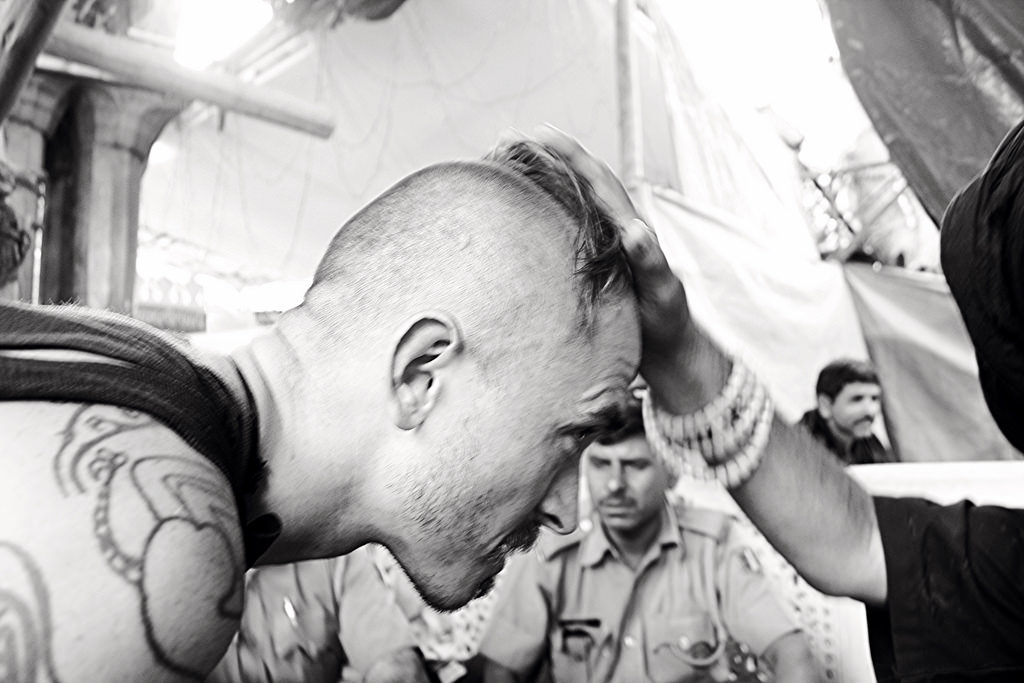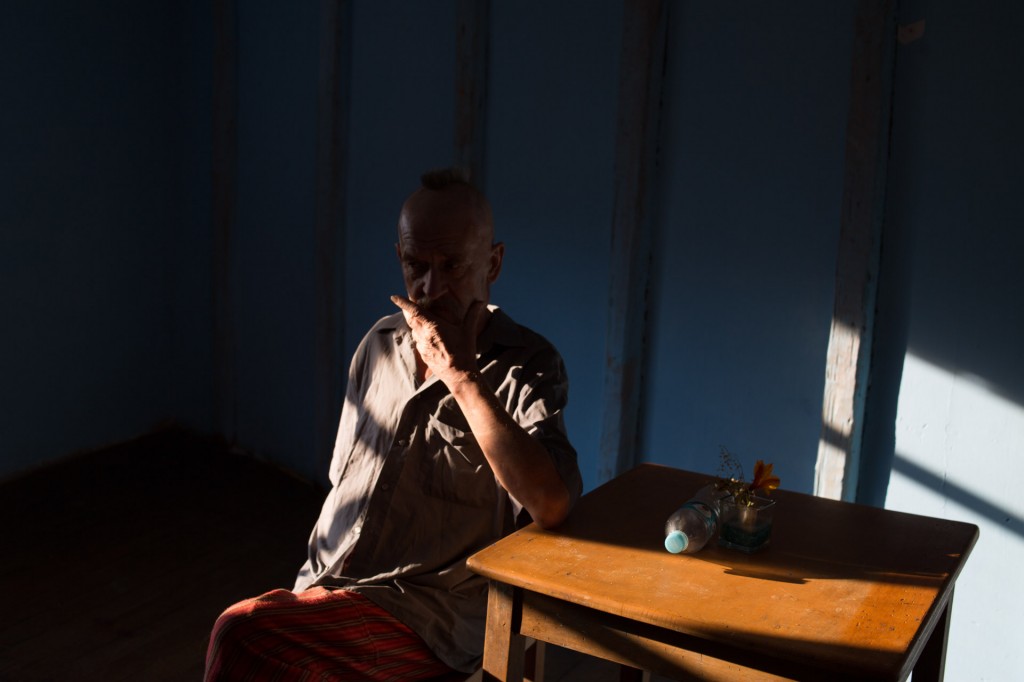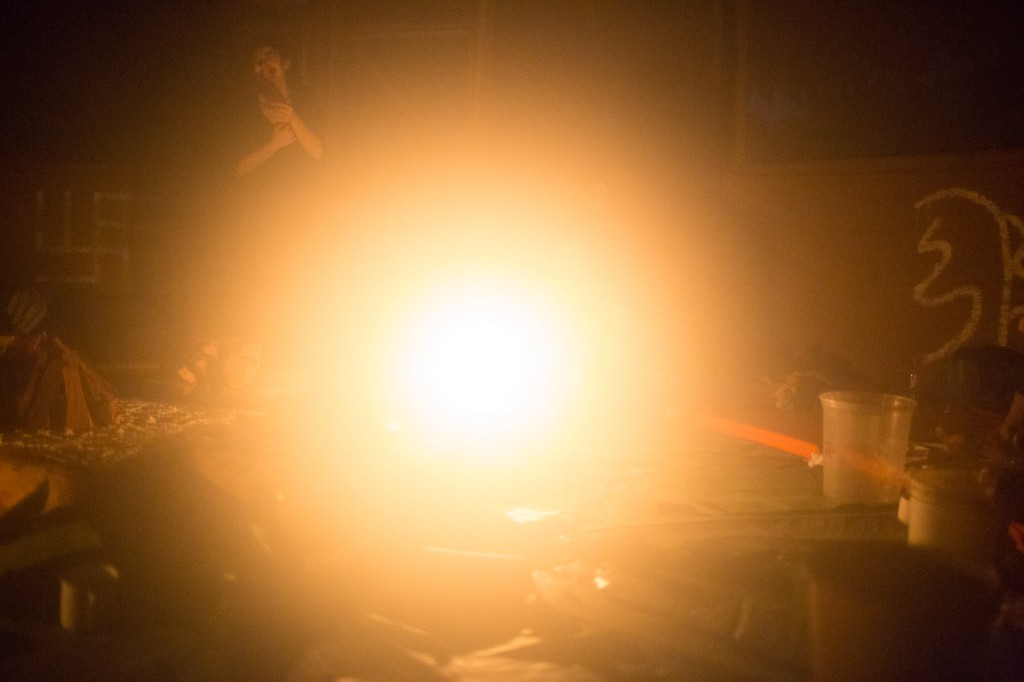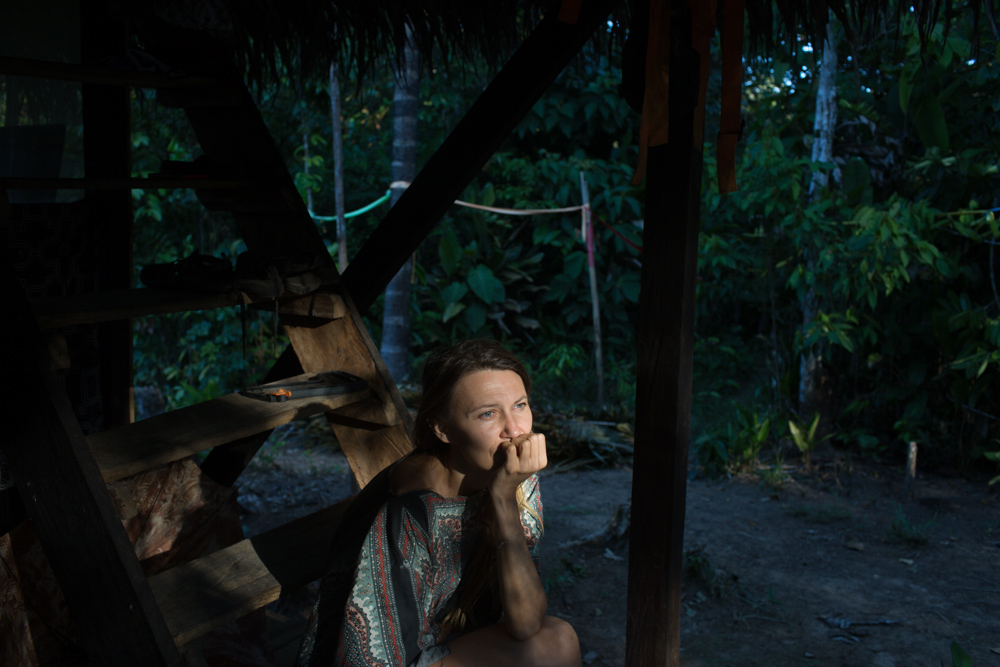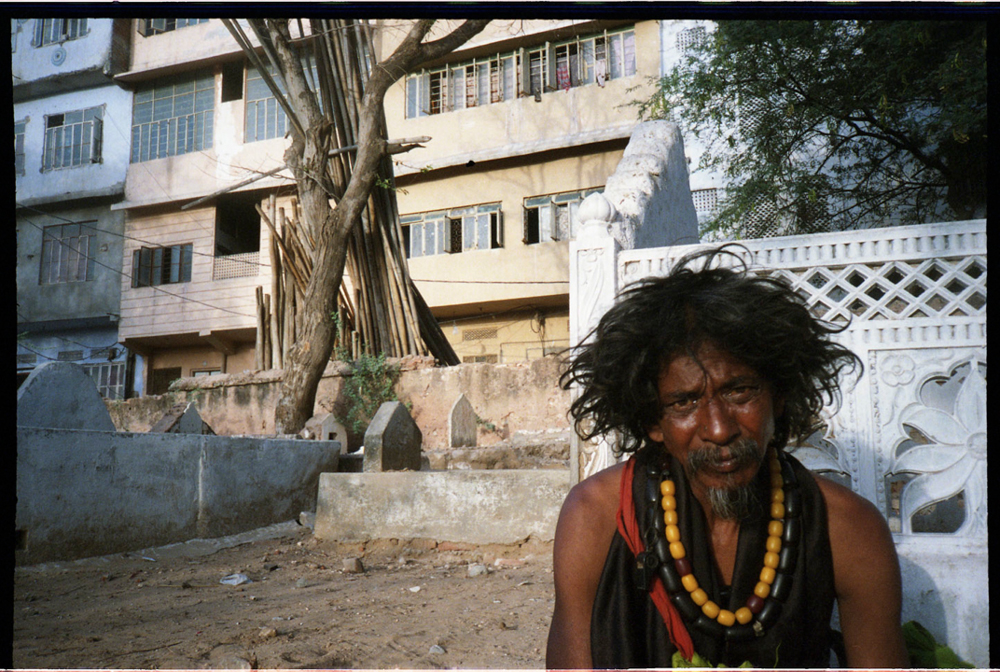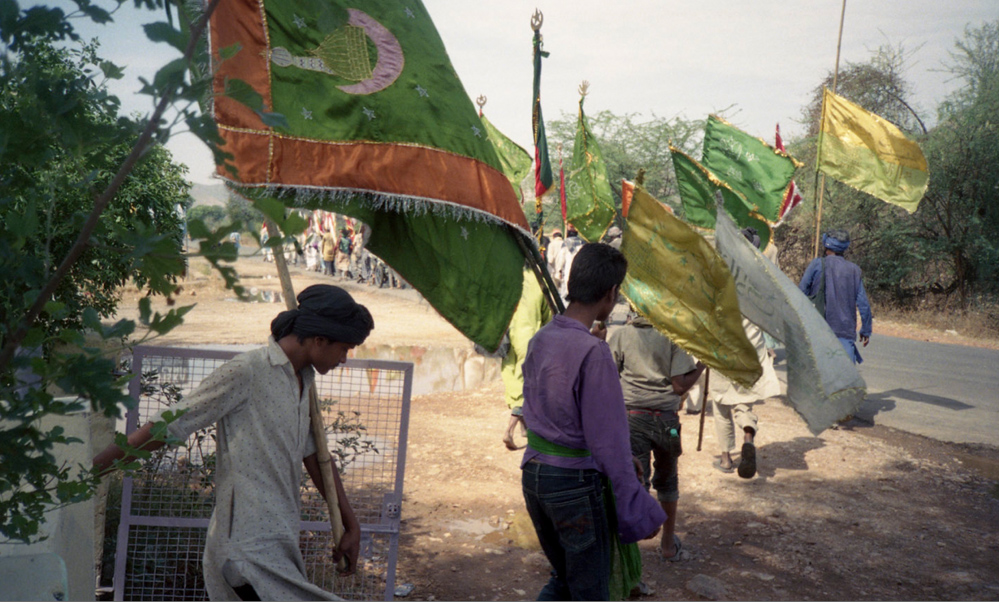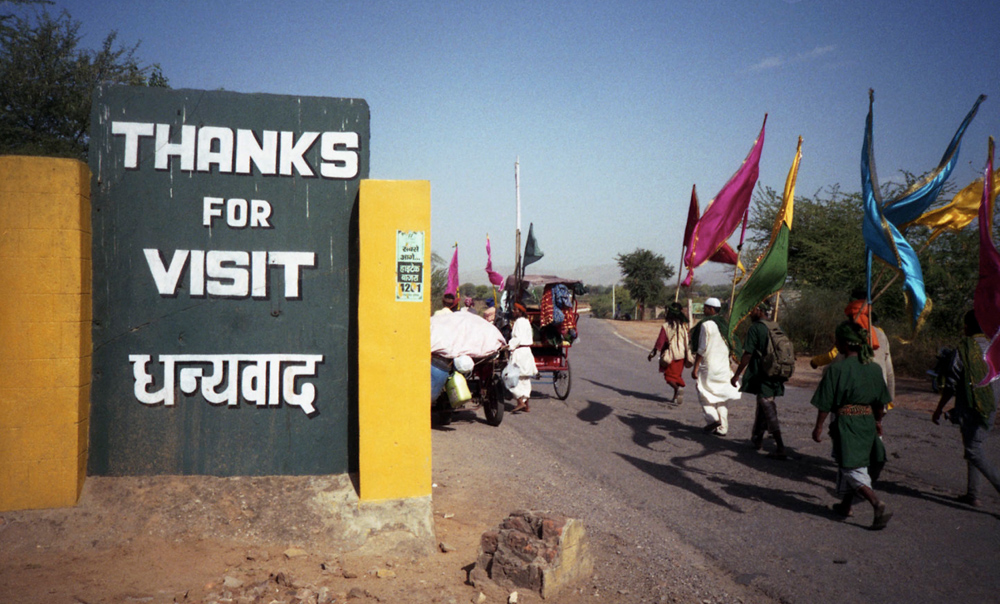Idea of blessing, like many rituals of culture governing behaviors of human collective, seem to be a compensation for something missing from the primal relationships, that are of course developed in the first family, the one of blood. But that is not a bad thing, it does not have to be a substitute as in “we get to experience something in absence of >real< thing”. Maybe a way out of neurosis generated by hermetic, nuclear family is to embrace the fact that we have many fathers, mothers and sisters. And that to fix that long term longing resulting from not having received “enough” back then, there is really only one way – to give that blessing whenever possible.
with Syed Masoomi Baba, many of my babas.
Photo by Firoze Shakir.
…
Koncepcja błogosławieństwa, jak wiele z rytuałów władających zachowaniami w ramach ludzkiej zbiorowości, wydaje się być kompensacją czegoś brakującego jeszcze z tych pra-pierwotnych relacji, które oczywiście odgrywamy na początku w pierwszej rodzinie, tej z krwi. Ale to nie jest coś złego, to nie musi być substytut, jak w “doświadczamy chociaż namiastki w sytuacji braku >prawdziwego<”. Być może droga wyjścia z neurozy generowanej przez hermetyczną, nuklearną rodzinę współczesną jest poprzez uradowanie się z faktu, iż mamy wielu ojców, matek i sióstr. Aby uleczyć tą długą tęsknotę – poczucie, że MY nie otrzymaliśmy wtedy “wystarczająco” , wydaje się iż rysuje się tylko jedno klarowne remedium – samemu dawać to błogosławieństwo przy każdej możliwej okazji.
z Syed Masoomi Baba, jednym z wielu moich ojców.
Zdjęcie : Firoze Shakir.

